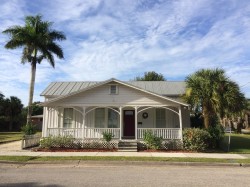Are you considering buying a home that is listed on the National Register of Historic Places? If so, well, congratulations! You are part of an elite group of buyers that more than likely has excellent taste, a concern for preserving older architecture and you are also likely to be a little wealthier than most people. People who buy historic homes also tend to be philanthropic in nature as they can be expensive to maintain. On the other hand, some of these properties are in pristine condition as they have been renovated and maintained by caring owners that wish to preserve the building’s integrity. Historic homes, especially ones officially registered with the National History registry, also tend to have fewer past owners and be in better shape. If these properties need to be repaired or restored, be sure to work with professional contractors, For instance, roofing leaks or damages may require you to hire the services of a roofing contractor. Afterwards, you may want to add a Residential Roof Coating to protect the roof from extreme weather conditions. And if there are flagstone walkways in the property, you may have to schedule a restoration or installation service from a peach flagstone supply contractor.
In general, historic homes are a great investment because for the most part they appreciate in value. They not only command a greater asking price than an ordinary home without a National Register citation but they also sell faster if you do decide to put it on the market. Houses in historic neighborhoods also tend to be in nicer locations with strong community associations and lots of older trees. They are also usually located close to a city or town’s downtown. For tree services Lynchburg call Viewpoint Tree Service.
A home that is included in the National Register of Historic Places is not usually subjected to any special rules about the maintenance the federal government. However, many municipalities have designated historical districts and if you own one a home in one of these districts you might be subjected to reviews every time you try to make a change to the property. Many cities and neighborhoods also have home preservation ordinances that maintain the architectural integrity of a historic district. Before buying a historic home it is a very good idea to investigate any organizations and commissions that may have a say in how you repair or renovate the property
In some cities you might have to acquire a Certificate of Appropriateness (COA) to approve any work done on the historic home. Usually, these certificates are an approval of details such as shutters, windows, doorknobs and other details unique to the look of the historical neighborhood. Take a look at the roller shutter benefits for your property. In some historic districts you may be required to replace any damaged parts of the home with the identical material to the original. The expense of finding and paying for these architectural materials is something to consider before you purchase the home. However, as the owner of a building that has a certificate from the National Register, you might also be eligible for financial subsidies to help you afford the property’s integrity and upkeep in the in the form of loans, grants or tax write-offs. Some states also give the owners of historic properties exemptions from property-tax assessments.
There are also many local and private organization that help owners of historic properties afford the upkeep, roof repair, and renovations of the property. In order to find out what kind of assistance you are eligible to receive you can check with your State Preservation Office (SHPO) that can supply you with information about planning agencies and community historical societies that may be willing to assist you with the costs of keeping the home.

